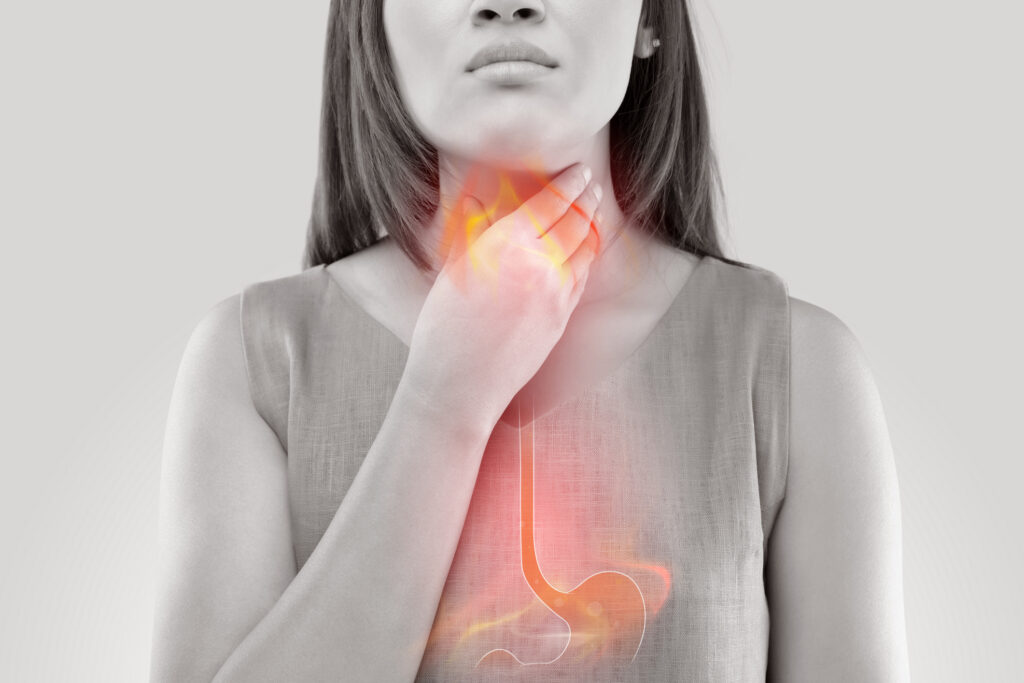Most of us have experienced heartburn, where you feel an uncomfortable burning sensation that feels like it’s traveling from the chest to the throat. It is not unusual to have these symptoms of acid reflux occasionally, especially after eating or drinking certain things. However, if they happen on a regular basis, such symptoms can point to a condition referred to as gastroesophageal reflux disease (GERD).
What are Common Signs and Symptoms of GERD?
Acid reflux is known as a condition called GERD when the symptoms occur often – at least 2 or more times per week. When this constant exposure to stomach acid causes damage to the esophagus, irritation occurs that can cause the following symptoms:
- Burning sensation in the chest and throat
- Burping up sour liquid or food
- Nausea with eating
- Difficulty swallowing
- The sensation of food stuck, or a lump in the throat
- Unpleasant breath
- Frequent choking
- Unproductive cough
- Sore or raw throat, or a hoarse voice
What’s the Cause?
Multiple factors can trigger acid reflux symptoms, such as:
- Fried, fatty, or spicy foods
- Foods or beverages with a high acidity content (such as tomatoes or citrus fruits)
- Beverages containing caffeine or alcohol
- Lying flat soon after eating, before your food has had time to digest
- Eating large meals
- Smoking
- Being obese
Is it Serious?
This constant irritation puts you a higher risk for additional issues with your esophagus, such as Barrett’s Esophagus, Peptic Ulcer Disease, or Eosinophilic Esophagitis. While these conditions can be treated, they may cause great discomfort in day-to-day life, and put you at risk for something more serious disease (such as esophageal cancer). So, while occasional heartburn or reflux symptoms are normal, you should talk to a doctor if you experience them more than twice a week.
How is Acid Reflux and GERD Treated?
Your doctor can recommend lifestyle changes, diet modifications and over-the-counter or prescription medications based on the frequency and severity of your symptoms. These can include:
- Avoiding the common causes of acid reflux.
- Antacid medications, for neutralizing stomach acid quickly. These are good for calming infrequent cases of heartburn or other symptoms of acid reflux.
- Histamine blocker medications, which decrease acid production for longer periods of time. There are versions available over the counter as well as by prescription. Long-term use should be directed by a physician.
- Proton pump inhibitors, which block acid and promote healing of the esophagus. There are versions available over the counter as well as by prescription. Long-term use should be directed by a physician.
Final Thoughts…
Think it’s time to talk to your doctor about your reflux symptoms? Our team at GAP specializes in conditions of the digestive system and can assist in a formal diagnosis along with determining the treatment options that are right for you.

